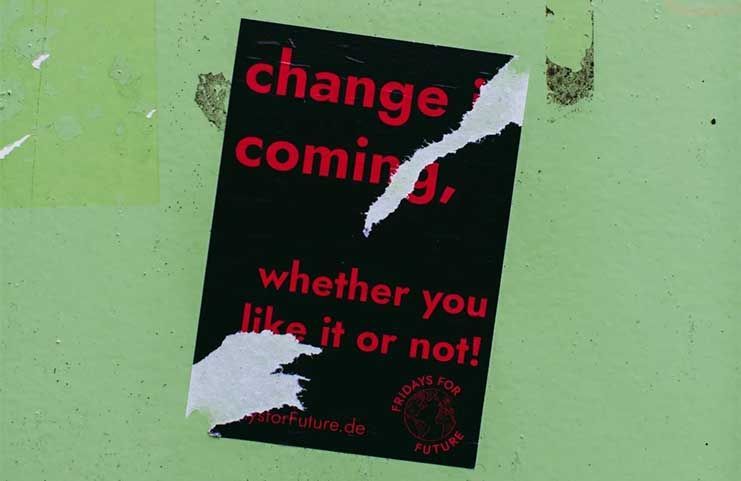What's Passion Got To Do With It?
For over 200 years the dictionary has defined grit as: “unyielding courage in the face of hardship.” Angela Duckworth, based on research she conducted at the University of Pennsylavania, changed the definition to: “perseverance and passion for long-term goals.”

For over 200 years the dictionary has defined grit as: “unyielding courage in the face of hardship.” Angela Duckworth, based on research she conducted at the University of Pennsylavania, changed the definition to: “perseverance and passion for long-term goals.” What did Duckworth find that compelled her to add “passion for long-term goals” to the definition? Why does demonstrating grit now require being “passionate about long-term goals?” Does Duckworth understand what having a passion for something really means? And should people really be thinking in terms of long-term goals in today’s world where the only constant is exponential change?
Jerry Useem addresses these issues in “Is Grit Overrated?” written in The Atlantic in 2016. He explains that “When you are truly passionate you are pushed along by your desire to the point where you are willing to endure pain and suffering.” I don’t think that members of the Greatest Generation were pushed along by their desire to get through tough times during the Great Depression. They did not choose to make it their passion. To survive, they simply had to channel the original meaning of grit: “unyielding courage in the face of hardship.”
Useem also challenges Duckworth’s emphasis on long-term goals. Most of her research was done in groups that operate in stable, unchanging environments. Only a couple of the groups she surveyed involved a workforce. “How well does (Duckworth’s) approach — pick one long-range goal, keep your head down, and don’t take a step sideways—hold up in an economy where career paths can twist and even vanish with little warning?’ Useem asks. “Shouldn’t you keep your head up, ready for the next pivot? Or have many irons in the fire, as the champions of ‘career agility’ suggest?”
A lot of Duckworth’s work was done in schools. Education has been our most change-averse institution for over a century. Students may be challenged to “pivot” in extracurricular activities like Maker’s Space, but the main focus in our schools remains “keeping your head down” to grind for grades. How are students supposed to turn on the passion switch when schools continue to adhere to the dreaded “absorb information and regurgitate it on the test” model? What if young Johnny wants to “regurgitate” every time he hears the word “Algebra?” How are you going to motivate him to develop a true passion for Algebra in the current environment? No wonder learning never metabolizes!
Duckworth admitted to Useem during her interview that she had “not thought of these issues.” He suspects (as do I) that this could be a result of “her own roots in education (where the paths to success have clear signposts) and her position in academia, one of the last truly guild-like domains.” There is a tremendous disconnect between schools and the real world. I know first hand how working in a linear, “absorb and regurgitate” environment can shelter you from the outside world where being ready for “the next pivot” is the key to success. As Lazlo Bock, Google’s first Chief People Officer once said: “People who succeed in academic environments are conditioned to succeed in that kind of environment. (In the real world) you want people who like figuring out stuff where there is no obvious answer.”
Jerry Useem recently wrote another article in The Atlantic where he expanded on these issues. In “At Work, Expertise is Falling Out of Favor,” he talks about how Duckworth’s concept of Grit “traces an intellectual lineage that can also be found in Malcolm Gladwell’s Outliers, which explains extraordinary success as a function of endless, dedicated practice—10,000 hours or more.” Useem contends that in the relatively stable environments that both Duckworth and Gladwell draw from a “rigid adherence to routine can no doubt serve you well. But in situations with rapidly changing rules and roles, a small but growing body of evidence now suggests that it can leave you ill-equipped.”
Catchy, narrowly conceived concepts “Grit” are not a panacea for the challenges that people face in today’s unstable, disruptive real world. To thrive in an environment where the only constant is exponential change you must be willing to demonstrate “unyielding courage” when confronted problems “where there is no obvious answer.”
So instead of keeping your head down and plugging away - stay agile, keep your head up and be ready for the “next pivot!”
Strive On!


